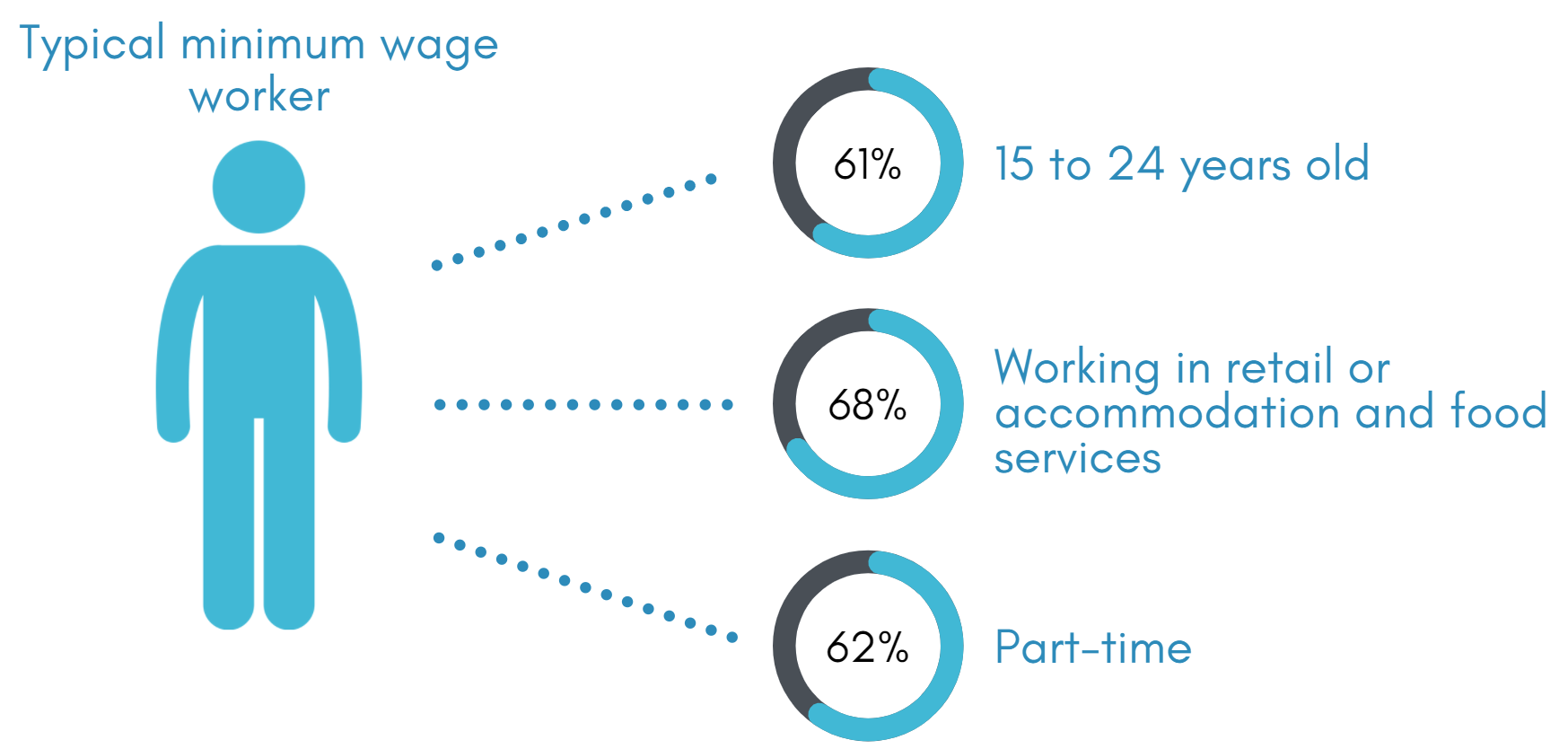Minimum wage hike: An effective measure?

Op-ed featured exclusively on our website.
On Friday, we learned that the minimum wage in Quebec will increase from $13.50 to $14.25 an hour. This is a very disappointing increase for organizations that are calling for a drastic hike to $18/hr, such as the FTQ. In response to this demand that would undermine the province’s (and workers’) economic prosperity, two important questions must be asked: What economic impacts would result from such an increase, and who typically earns minimum wage? After all, before raising the minimum wage by 33%, the government must understand the disadvantages of doing so, and whether or not these earners are really in a permanently precarious situation.
First off, it’s clear that a 33% minimum wage increase, should it happen, would have negative effects on many Quebec companies, notably SMEs, 9 in 10 of which would be directly affected. Indeed, combined with the difficulties faced during the pandemic, an $18/hr minimum wage would hurt many SMEs, 25% of which may already close for good in 2022.
The economic sectors that employ the most minimum wage workers are retail (45%) and accommodation and food services (23%), accounting for 182,000 workers between them. Note that these two sectors operate with very thin profit margins. In other words, once they’ve paid their taxes and operating expenses (wages, electricity, rent, etc.), the sale of goods and services brings in very little; they therefore have to count on volume. In fact, many restaurants make just $3 of profit per $100 of sales once they’ve paid their bills. A minimum wage hike to $18/hr would eat into their already very modest profit margins, pushing them to raise their prices or turn to automation, for instance.
The typical minimum wage earner
The many testimonials of single mothers earning minimum wage depict their difficult circumstances, but the typical profile of a minimum wage worker paints a different picture.
No less than 60.6% of these workers are 15 to 24 years of age—a group that includes many students who typically do not have dependents and who are statistically more likely to live with their parents. Moreover, nearly 62% of minimum wage earners work part-time. It follows that the typical profile of a minimum wage worker is someone 15 to 24 years old working part-time in retail or accommodation and food services. This is a far cry from the image of a single mother or of a worker stuck earning this salary their whole life.
Demographics of minimum wage workers in Quebec in 2019

Let’s prioritize education
A single parent working for minimum wage today ($13.50/hr) for 35 hours a week will earn a gross annual income of $24,570. But we can’t stop with this simplistic calculation if we want an accurate picture of these workers’ situation. Of course, this remuneration would barely cover expenses, but the governments of Quebec and Canada are well aware of this.
Indeed, thanks to government benefits (tax credits, transfers, etc.), this gross income of $24,570 becomes a net disposable income of $34,672. This extra $10,000 is the equivalent of an hourly wage of $19.05/hr, an even more generous amount than demanded by many organizations.
Increasing the minimum wage is a measure with a very laudable underlying motive: giving a helping hand to low-income individuals. But there are other, more effective and less economically harmful ways to come to their aid. We mustn’t fall into the trap of choosing the public policy that seems like an easy fix. If we really want to help the less fortunate, let’s bank on education and training. Quebec workers deserve better than temporary and ill-advised aid that will hurt our entrepreneurs who are struggling just to keep their heads above water.
Maria Lily Shaw is an Economist at the MEI and Gabriel Giguère is a Public Policy Analyst at the MEI. The views reflected in this opinion piece are their own.

